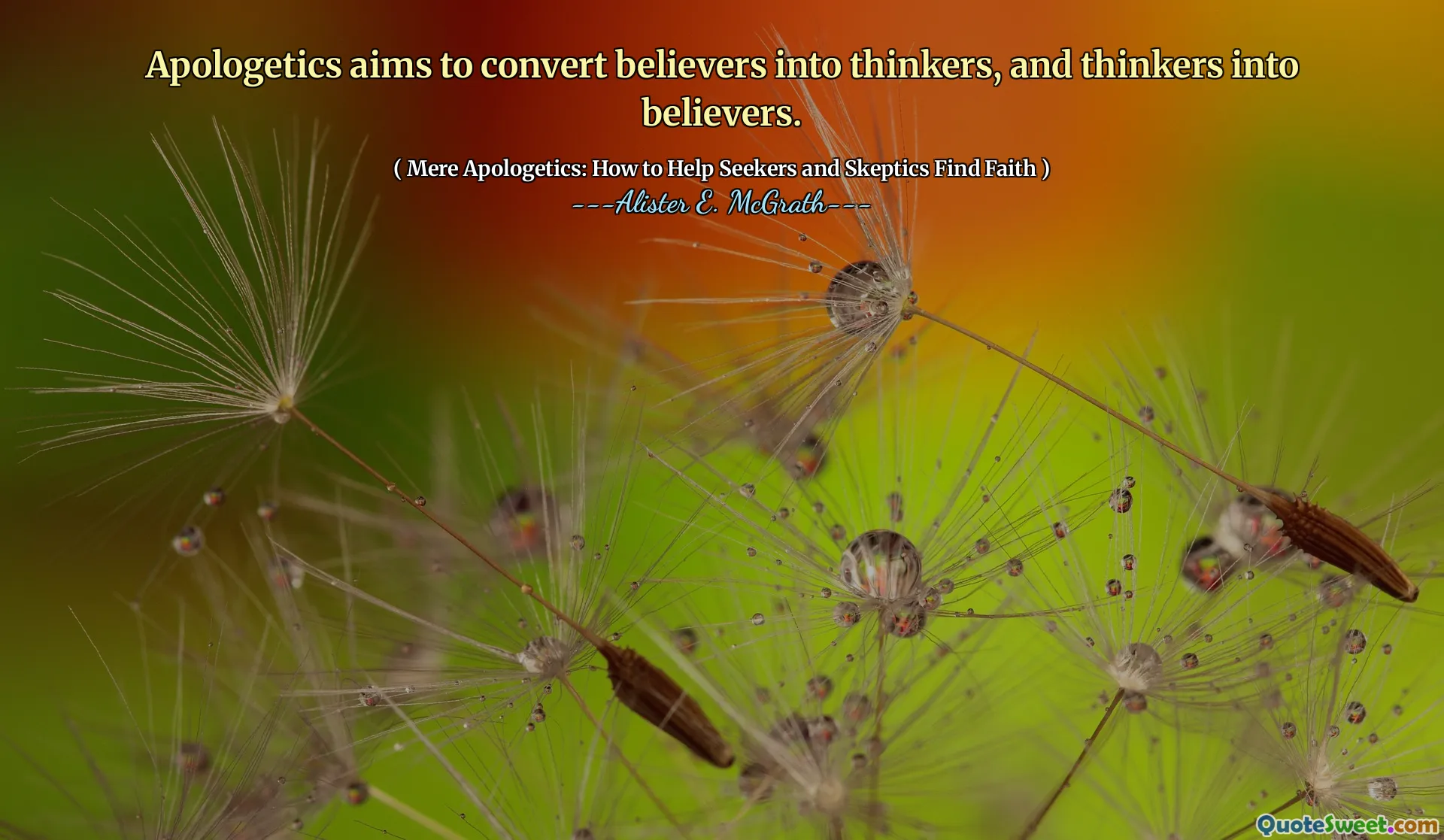
Apologetics aims to convert believers into thinkers, and thinkers into believers.
This quote underscores the transformative power of apologetics in the realm of faith and reason. At its core, it suggests that the role of apologetics is not merely to defend or justify religious beliefs, but to cultivate an environment where believers are encouraged to think deeply and critically about their faith. When believers become thinkers, they develop a richer, more resilient understanding of their beliefs, capable of engaging with doubt, questions, and the complexities of the modern world. Conversely, transforming thinkers into believers highlights the importance of approachable, thoughtful dialogue that inspires an eventual heartfelt acceptance. It emphasizes that faith should not be blind or unquestioning but rooted in understanding and reflection. This approach can bridge the gap between skepticism and faith, inviting individuals to explore their spiritual convictions with an open yet critical mind. Moreover, it suggests that genuine faith can coexist with intellectual rigor, dispelling the stereotype that belief and reasoning are mutually exclusive. By fostering this progression—believers becoming thinkers and thinkers becoming believers—apologetics can help cultivate a more thoughtful, genuine, and resilient spiritual community. Ultimately, this process enriches the individual's journey of faith, transforming it from passive acceptance into an active, reflective pursuit that enhances both understanding and conviction.






